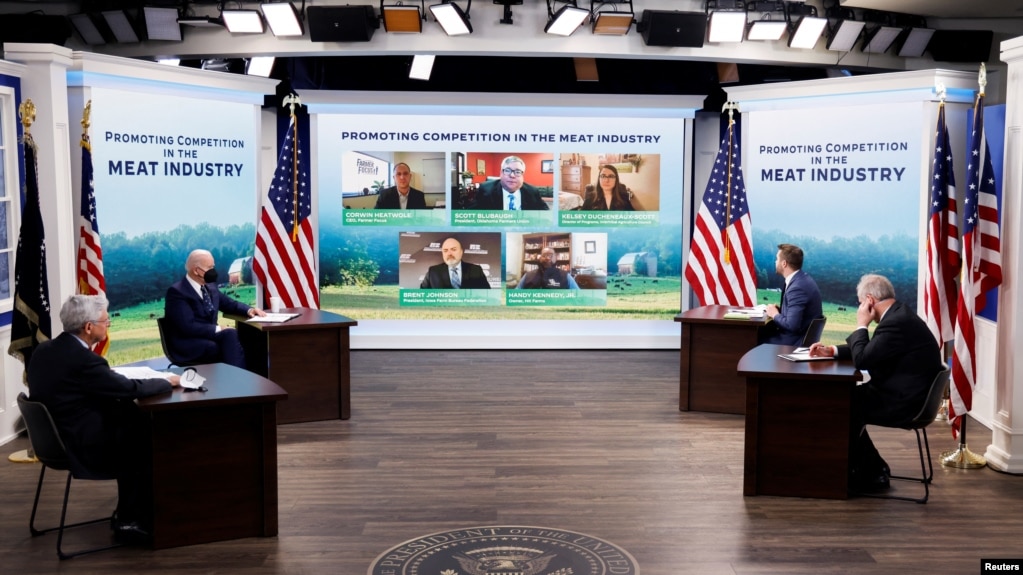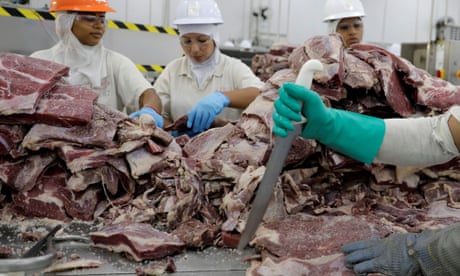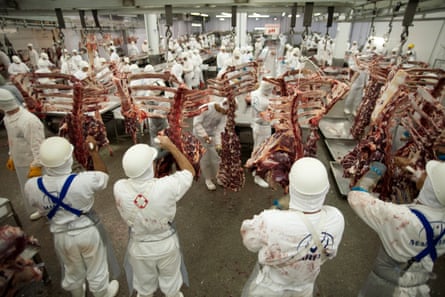By Tom PolansekApril 30, 2024
REUTERS

A worker sorts cage-free chicken eggs at Hilliker's Ranch Fresh Eggs in Lakeside, California, U.S., April 19, 2022. Picture taken April 19, 2022. REUTERS/Mike Blake/File Photo
CHICAGO, April 30 (Reuters) - Some U.S. farmers who once raised chickens for Tyson Foods to slaughter are shifting to sell eggs instead after the meatpacker closed six plants, a move that left local suppliers with limited options for work.
In one example, former Tyson suppliers in central Virginia formed a cooperative that will produce cage-free eggs for Indiana-based Dutch Country Organics on a dozen farms, after Tyson closed its nearby Glen Allen plant last year.
In Dexter, Missouri, the world's biggest egg company, Cal-Maine Foods (CALM.O), opens new tab, in March finalized a deal to buy another chicken meat plant Tyson shuttered. Cal-Maine recruited local farmers to produce eggs.
The switch to eggs, which carries high costs, reflects the tough choices former Tyson suppliers around the country must make following the company's 2023 decision to shut plants in an effort to return to profitability in its chicken business after misjudging consumer demand.
Egg farming also comes with risk as lethal bird flu infections have hit laying hens harder than broiler chickens raised for meat. The virus flared up for a third year this spring, resulting in the culling of nearly 10 million hens involved in commercial egg production so far this year. Cal-Maine culled about 1.9 million, opens new tab birds this month after an outbreak in Texas.
MILLIONS TO UPGRADE
Former broiler growers must spend millions of dollars on barn and equipment upgrades to produce eggs, a notoriously volatile market, 18 poultry producers, government officials and industry experts told Reuters. Last year, egg prices tanked after reaching record highs due to the worst-ever outbreak of bird flu in poultry.
"It's a very expensive investment from the grower," said John Bapties, who is president of the Central Virginia Poultry Cooperative and raised chickens for Tyson for 20 years before the Glen Allen plant closed.
His cooperative is placing hens in barns that formerly housed broiler chickens, and expects to sell cage-free eggs produced by about one million birds to Dutch County Organics within a year, he said.
Farmers needed to replace dirt floors in barns with concrete and install nesting systems for hens, among other costly renovations.
Taylor Lee, a former Tyson grower in DeWitt, Virginia, said he decided against the switch. He will focus on raising crops while keeping his poultry barns empty for now.
"They're painting a pretty picture with that co-op but it's $2.8 million roughly to upgrade my farm to egg production," Lee said.
Roger Reynolds, another Virginia farmer who supplied broiler chickens to Tyson, said he is considering producing eggs for Braswell Family Farms. His daughter found work there after Tyson's plant closure eliminated her job.
Producing eggs means a different way of life, Reynolds said. For one thing, hens lay most of their eggs in the morning, meaning farmers cannot go to church on a Sunday without checking their barns first, he said.
CAGE-FREE EGGS
The United States has about 125 million cage-free laying hens, about 40% of total layers, U.S. government data show. More are needed after some states banned sales of eggs from caged hens and restaurants committed to cage-free supplies, Dutch Country Organics CEO Lamar Bontrager said.
"I've been getting calls like crazy," Bontrager said. "Those guys are all concerned of where to procure their eggs."
"It's one of the ways that these companies are converting: by grabbing old barns," said Brian Moscogiuri, global trade strategist for Eggs Unlimited.
Tyson declined to comment. The company said last year that 55 broiler growers supplied the Glen Allen plant and that it offered them buyout packages. The plant had about 700 employees.
The meatpacker is slated to report quarterly results on Monday.
In Arkansas, the third biggest broiler-producing state, Tyson closed two chicken plants. Some of its former growers found work supplying other chicken companies, said Jared Garrett, Arkansas Farm Bureau's director of commodity activities and economics.
"They lucked out," he said.
JOBS WANTED
Tyson closed chicken plants in Dexter and Noel, Missouri, with about 700 workers and 1,500 workers, respectively. Cal-Maine said it plans to initially employ about 100 people at the Dexter plant.
"While I welcome Cal-Maine's investment in Dexter, it does not right the wrongs of Tyson or guarantee new jobs for the more than 2,000 Missourians now out of one," U.S. Senator Josh Hawley of Missouri said in a statement to Reuters.
David Wyman, Dexter's city administrator, also welcomed Cal-Maine, though it is expected to work with a fraction of the farmers who supplied Tyson. Cal-Maine said it expects to expand over time and that revenue opportunities will be as good or better than farmers had under previous contracts.
But some former Tyson suppliers are left with empty barns, Wyman said: "They're really in bad shape."
Egg farming is generally harder to get into operationally than raising chickens for meat; requires more capital and labor expertise; and carries higher disease risks, said Wendong Zhang, an assistant professor and agricultural economist at Cornell University.
"Due to the closure of the plants and termination of contracts, the switch is in a way a move of necessity," he said.
Get weekly news and analysis on the U.S. elections and how it matters to the world with the newsletter On the Campaign Trail. Sign up here.
Reporting by Tom Polansek; Editing by Caroline Stauffer and Anna Driver






















